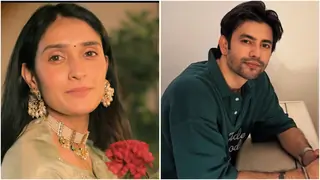Originally posted by: gemini54
@jamy I have no words for your outstanding post other than say take a Bow
Especially for these below
As a human, I always give more value to integrity than emotions. Sometimes, it is difficult for me, to mercilessly uproot my beliefs and plant a new one, but no growth has ever come without pain. When a bud flowers, the bud is forever lost, but a more beautiful being is born. It takes time, but not impossible for anyone who wish to grow. Those who would like to stay wherever they are, it is their choice.
I have not read much writing in Sanskrit so may not be able to contribute to yourwriting effectively but the essence is Right versus Wrong.
Who makes the rules. In the Dice match Yudhistra pawned his wife was she his property ?. The game of dice was between Yudhistra and Duryodhan then why was Shakuni playing in Duryodhan behalf?
Not just that, Yudhishtira pawns his wife AFTER he has lost the throw, and has thus become a slave of Duryodhana's . He thus no longer has the right to pledge anyone. But he goes ahead, regardless. It is the height of irregularity. I have always despised Yudhishtira for this and his other major failings.
Dhritirashra was the first born and the rightful heir to the king but he was thought not fit because of his blindness a disability but did not Pandu have an ailment too.
Yes, but Pandu's ailment was not such as to disqualify him from kingship. Dhritharashtra's was. A blind king would not command the authority and acceptance that would be needed.
The children the Pandavas were born of gods not Pandus but Yudhistra was still considered the rightful heir.
They were called Pandavas, or Pandu putras because they were born under the Niyoga option, that was acceptable then. In fact Dhritharashtra, Pandu and Vidur were all fathered under the same pratha.
When a husband was incapable, for whatever reason, of fathering a child (in the case I have cited above it was because Vichitravirya was dead, and Satyavati stretched the Niyoga concept to breaking point😉!), his wife could, with the husband's consent, have physical relations with another man and beget a child, who would then be recognised as the child of the husband.
In Kunti's and Madri's cases, the five boys - Yudhishtira, Bhima and Arjuna for Kunti, and Nakula and Sahadeva for Madri - were born of different gods, but always with Pandu's consent. So they were all accepted as Pandavas and as Kuru princes, and Yudhishtira, as the eldest, was the heir to the throne of Hastinapur.
So who makes these so called rules of right and wrong and is there a clear demarcation between right or wrong or is it open to interpretation?
Thoughts to ponder.
There are a lot of loopholes and doubtful passages in the Mahabharata, and even in the more black and white Ramayana. But I feel that to push the relativity argument to extremes would only end in there being no more sense of good and bad, and that would push us all into chaos.
I want to thank you again for the brilliant piece of writing























